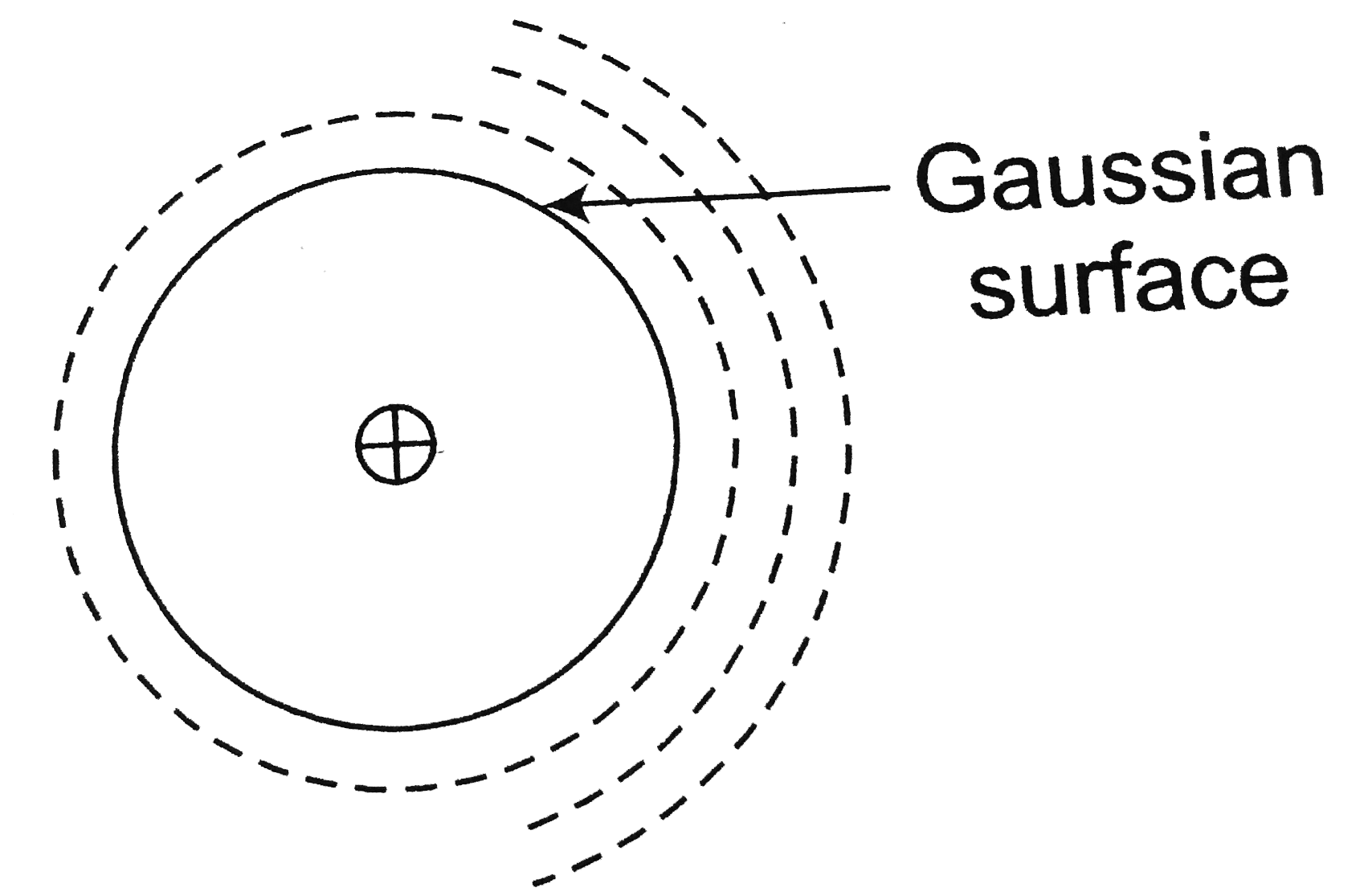A charge Q is enclosed by a Gaussian spherical surface of radius R, If the radius is doubled, then the outward electric flux will
be reduced to half
remains the same
be doubled
increases four times
The correct Answer is:B
Similar Questions
A positive charge q is enclosed by a Guassian spherical surface of radius 'a' . If its radius is increased to 4a then the net outward flux will
View SolutionA positive charge q is enclosed by a Guassian spherical surface of radius 'a' . If its radius is increased to 4a then the net outward flux will
View Solution
Knowledge Check
An infinite, uniformly charged sheet with surface charge density σ cuts through a spherical Gaussian surfance of radius R at a distance X from its center, as shown in the figure. The electric flux Φ through the Gaussian surfce is .
 AπR2σɛ0Bπ(R−x)2σɛ0Cπ(R−x)2σɛ0Dπ(R2−x2)σɛ0
AπR2σɛ0Bπ(R−x)2σɛ0Cπ(R−x)2σɛ0Dπ(R2−x2)σɛ0A charge q is enclosed by an imaginary Gaussian surface.

If radius of surface is increasing at a rate drdt=K, thenAflux linked with surface is increasing at a rate dϕdt=KBflux linked with surface is decreasing at a rate dϕdt=−KCflux linked with surface is decreasing at a rate dϕdt=1KDflux linked with surface is qε0
Define electric flux. Write its SI unit. A charge q is enclosed by a spherical surface of radius R. If the radius is reduced to half, how would the electric flux through the surface change ?
View SolutionDefine electric flux. Write its SI unit. A charge q is enclosed by a spherical surface of radius R. If the radius is reduced to half, how would the electric flux through the surface change ?
View SolutionA charge Q is enclosed by a Gaussian surface. If surface area is doubled and charge Q is tripled then the outward electric flux will
View SolutionA charge Q is enclosed by a Gaussian surface. If surface area is doubled and charge Q is tripled then the outward electric flux will
View SolutionA charge Q is enclosed by a spherical Gaussian surface of radius R. If the radius of the sphere is double, how will the outward electric flux charge ? If a charge −Q is brought outside the Gaussian surface, will the electric flux reduce to zero ?
View SolutionAn infinite, uniformly charged sheet with surface charge density σ cuts through a spherical Gaussian surface of radius R at a distance X from its center, as shown in the figure. The electric flux Φ through the Gaussian surface is .

View Solution
